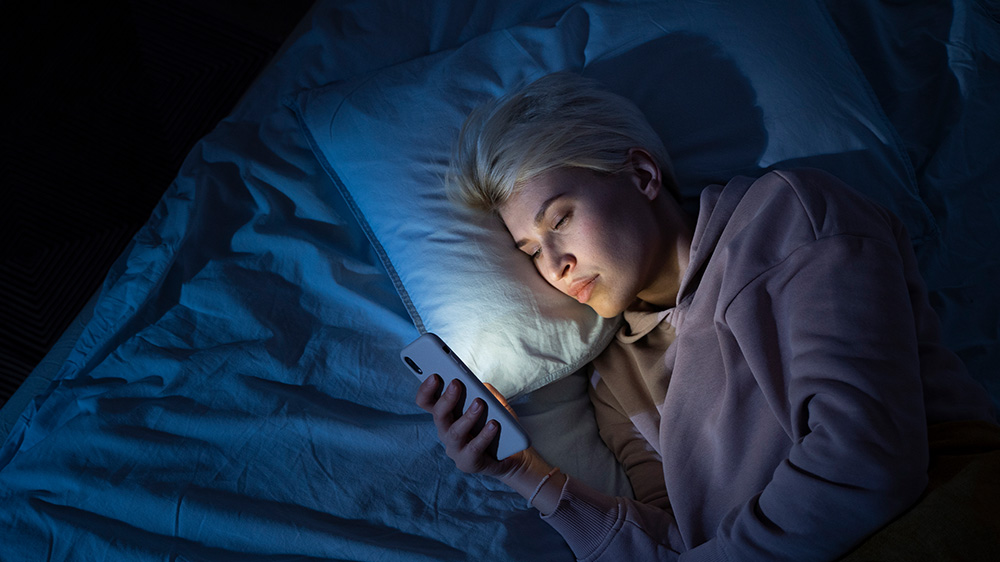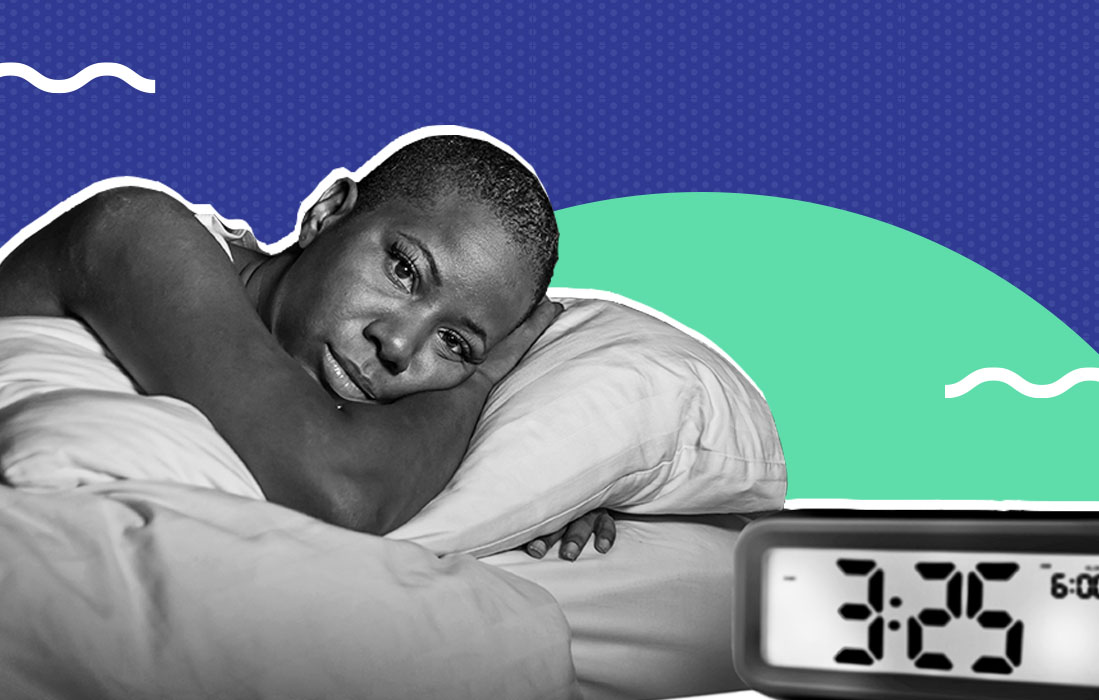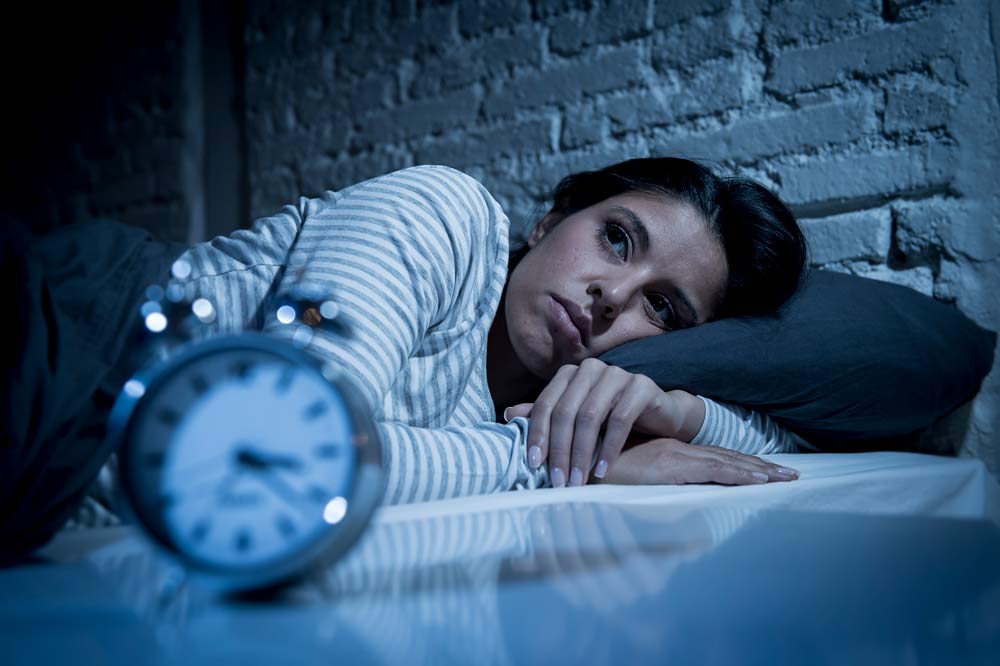
You’ve probably heard about it by now. We’ve certainly written about it — in detail! But just in case you haven’t already read our helpful story, a quick summary: at the end of a busy day, you probably can’t wait to get to sleep. But if you’ve ever put off sleeping even though you have nothing else to do, you may be a pro in “bedtime procrastination.” (Yes, it is a thing, even according to science.)
Some people experience what experts call “revenge bedtime procrastination” — that’s when you stay up doing fun stuff because you don’t feel like you get to do it during the day. (Translation: You get mad because you have no “me” time during the day, so you make it for yourself at night — and it could mean that you sacrifice sleep if you have to get up early the next day.)
Bedtime procrastination is nothing new, but there’s been a lot of awareness about it on social media lately. (More people probably started posting about it when they were able to put a name to a popular practice.) Then it gained traction in the news. And here we are.
The Science of Bedtime Procrastination
Typically when you procrastinate, it’s over something you don’t want to do. But going to bed tends to be something you may want to do. So bedtime procrastination isn’t about not wanting to sleep. Instead, it’s about not wanting to stop doing other things.
There’s actually a lot of research on bedtime procrastination and revenge bedtime procrastination. (Always a good thing, because then it gives us more insight into how we can deal with it.)
Researchers think the invention of 24/7 news and social media on personal electronic devices has given us more distractions compared to before they were invented.
In one small study, people who scored lower on self-regulation spent more time procrastinating sleep. Bedtime procrastination was related to not getting enough sleep.
Other research found that not being too concerned about or considering your future made people ages 11 to 23 more prone to revenge bedtime procrastination compared to their peers. Levels of self-control and problematic smartphone use were predictors of bedtime procrastination.
A study on 400 high schoolers took bedtime procrastination to a deeper level when the researchers looked at “while-in-bed procrastination.” They found that bedtime procrastinators do it because they have a later waking time or eat later, but while-in-bed procrastinators are more likely to be males who didn’t want to go to sleep until later, and had an earlier dinnertime.
Other research says bedtime procrastination could emerged more so for some people, or gotten worse, as a result of the pandemic. This is because some people didn’t know how to handle the boundaries between home and work. Some may have been working more than usual, craving a break for leisure activities yet having to stay home.
Experts think there are a few reasons why we delay sleep. Some people think we need space and time to ourselves because we’re always “on” during the day. It may help people feel more in control of their lives if they feel out of control for most of a typical day. For some people, it could be a distraction from anxiety. It could give us time to seek out more information (hello scrolling news) if we are uncertain about things.
Here’s something to know about bedtime procrastination: You’re likely to choose to do it later in the day when you aren’t your best self, so to say. That is, you may opt to scroll through your social media feed instead of getting Z’s because you have less self-control at the end of a day, research has shown. Some research even shows that resisting your desires during the day can build up so you have less self-control come bedtime—and hence the bedtime procrastination.
Putting Off Procrastination
If you find that you’re doing nothing productive with your procrastination time — and you’re losing out on much-needed sleep — you may want to try other ways to unwind and/or treat yourself.
Katherine Templar Lewis, lead scientist on The Uncertainty Experts, told Yahoo that people should read a book or listen to a podcast if they feel they need some time to themselves during the evening. Yoga and meditation may help, too.
Those won’t subject you to blue light, doomscrolling, or cycles of social validation, Lewis added.
Interventions like these cognitive tricks have been successful to reduce bedtime procrastination:
- Mental contrasting is when you name a wish and talk about the best outcome. If your wish is to get to bed on time, your best outcome may be to feel well-rested the next day. You imagine an obstacle to reaching that outcome (like the urge to scroll through your Instagram feed).
- Implementation intentions have been used in combination with mental contrasting. For this, you form an “if-then” plan for the future that details when, where and how you’ll get to your goal. For example, if you want to get to bed on time, you figure out how to do that if an obstacle comes up. It may be stopping what you’re doing at a certain time and going to bed.
Revenge bedtime procrastination can be a sign of more serious problems like experiencing burnout or being disempowered. If you think it’s causing or contributing to mental health issues, talk to a therapist or your doctor.

Revenge Bedtime Procrastination

Types of Insomnia — Causes and Treatments

“Sleepy Sorbet” Is Everywhere, But Does It Work? I Tried It Out Myself

What Experts Say About the “Bed Rotting” Trend and Its Claims to Boost Mental Health
Sources
Mao B, Chen S, Wei M, Luo Y, Liu Y. Future Time Perspective and Bedtime Procrastination: The Mediating Role of Dual-Mode Self-Control and Problematic Smartphone Use. International Journal of Environmental Research and Public Health. 2022; 19(16):10334. https://doi.org/10.3390/ijerph191610334
Floor M. Kroese, Denise T. D. De Ridder, Catharine Evers and Marieke A. Adriaanse; “Bedtime procrastination: introducing a new area of procrastination,” Front. Psychol., 19 June 2014, Sec. Personality and Social Psychology, Volume 5 – 2014; https://www.frontiersin.org/articles/10.3389/fpsyg.2014.00611/full
Roy F. Baumeister, Yielding to Temptation: Self-Control Failure, Impulsive Purchasing, and Consumer Behavior, Journal of Consumer Research, Volume 28, Issue 4, March 2002, Pages 670–676, https://doi.org/10.1086/338209
Timothy J. Valshtein, Gabriele Oettingen & Peter M. Gollwitzer (2020) Using mental contrasting with implementation intentions to reduce bedtime procrastination: two randomised trials, Psychology & Health, 35:3, 275-301, DOI: 10.1080/08870446.2019.1652753



























